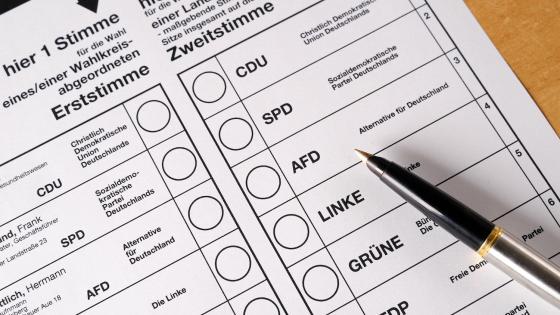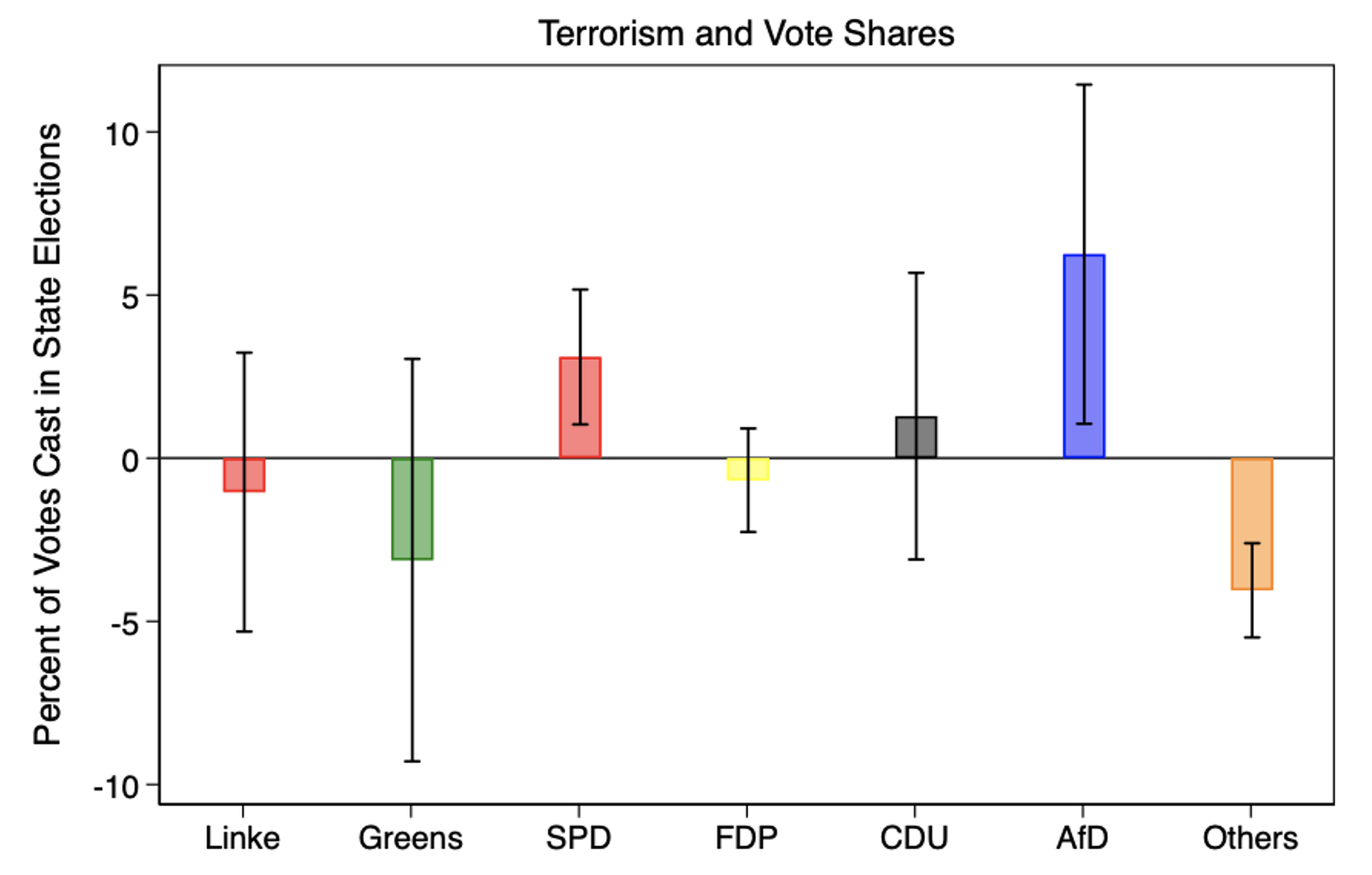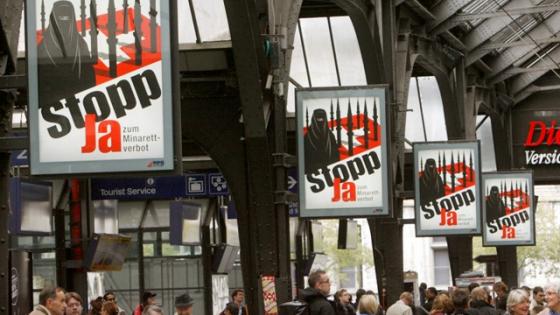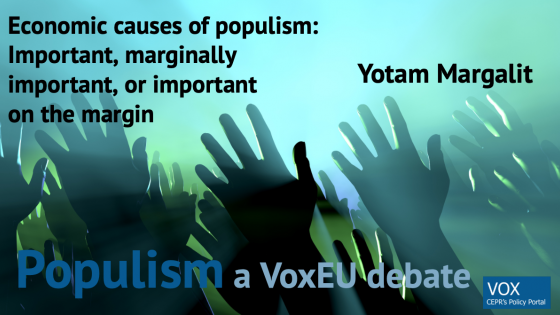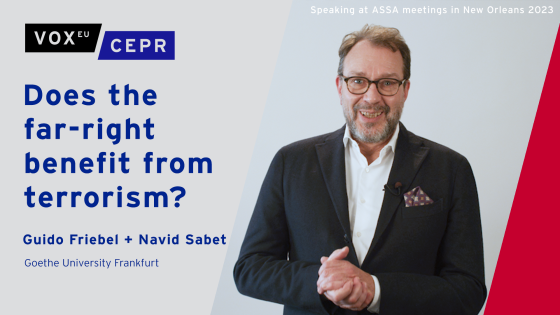Right-wing populist movements present a threat to liberal democracies around the world. Whereas in the past the threat was explicit— through such means as military rule, outright dictatorships, and fascist regimes — today it is more subtle, involving the gradual erosion of trust in democratic norms and institutions (Levitsky and Ziblatt 2019, Norris and Inglehart 2019). In Western societies, the vote share for right-wing, authoritarian, populist parties in national elections has more than doubled, from some 5% in the 1960s to more than 12% in the 2010s (Norris and Inglehart 2019).
These developments have renewed interest in understanding the causes of populism. In this respect, a substantial literature has argued that the rise of right-wing populism in many countries can be attributed — at least partially — to voter dissatisfaction triggered by economic insecurity and distress (Guiso et al. 2020, Guiso et al. 2017a, Dal Bó et al. 2018, Dehdari 2021), globalisation shocks such as trade liberalisation (Rodrik 2018), and government austerity (Fetzer 2019). Economic factors, though, tend to be of only limited importance in understanding the emergence of populism, as Margalit (2019 b) has argued in Vox (see also Margalit 2019a). Scholars have hence paid more attention to the “socio-cultural axis of political conflict” by highlighting the importance of such factors as identity, education, and migration in generating a “cultural backlash” from which populist movements spring to power (Bonomi et al. 2021, Gethin at al. 2021, Norris and Inglehart 2019).
Although the literature has examined the role of cultural conflict in explaining the rise of populism, the role of violent conflict has received less attention, despite the strategies of many right-wing authoritarian movements to emphasise security against (actual or perceived) internal or external threats and to play on the politics of fear (Norris and Inglehart 2019). But can acts of terror actually shift the political landscape of a nation to the right? Does terror mobilise voters, affect voter preferences and attitudes, and lead ultimately to differential voting behaviour?
In our research, we identify the causal impact of small, local terror attacks on the vote share for the right-wing, populist Alternative für Deutschland (Alternative for Germany, henceforth AfD) party across German municipalities. We also provide an account as to why terror increases support for the far right, highlighting the role of voter mobilisation, the attacks’ media coverage, and responses of political parties. To identify casual effects, we rely on the success or failure of attacks in a similar manner as Brodeur (2018) and Jones and Olken (2009). What makes this empirical strategy suitable is the fact that — as we document in the paper — the success of an attack is random in the sense that it is not related to endogenous factors. A terror attack can fail if a bomb does not explode or a weapon is jammed. Indeed, comparing municipalities hit with successful or failed attacks along a wide range of municipality characteristics reveals no significant social, economic, demographic, geographic, or political differences between them. We also find no significant differences in attack characteristics, including attack motivation or weapon technologies. This enables us to isolate the effect of successful terrorist attacks on far-right voting.
In our analysis, we compare the AfD vote share in federal, European, and state elections between 2013 and 2021 in German municipalities targeted with successful and failed attacks since 2010. Our results suggest that the AfD experiences a six percentage point increase in state elections in municipalities hit with successful attacks, an increase of some 35% relative to the sample mean. We find no effects for federal or European parliament elections. These results are in line with the fact that matters of internal security in Germany — including policing politically motivated terrorism — are primarily (but not exclusively) left to federal states to determine. They are also in line with the fact that the terrorist attacks in our sample receive far more news coverage at the regional and local level than they do at the national level.
Our results are even more intriguing when one considers that nearly 75% of the attacks in our sample are carried out by right-wing extremists and target foreigners, suggesting that the right-wing, AfD benefits from right-wing attacks. To better understand why this is the case, we explore various mechanisms that drive our effects. In this respect, we uncover four main sets of results, three of which we present in this article.
First, we find that successful terror attacks lead to large, significant increases in voter turnout in state elections, on the order of some 16 percentage points. This resonates with Morelli (2020), who has argued that populism was a mobilisation strategy during Covid. In our case, the AfD claims more than 30% of this mobilisation, while the remaining 70% of the turnout effect is spread among other political parties. This differential capture of voters translates into a significant realignment of vote shares. Whereas the AfD increases its share of votes cast by some six points, other parties – including the centre-right Christian Democratic Union (CDU) that led the federal government from 2005 to 2021 – experience either no effects or much smaller gains.
Figure 1 Successful terror and voting outcomes
Note: This figure shows the effect of successful terror, compared to failed terror, on the percentage of votes cast for different parties in Germany’s political landscape for state elections.
Second, employing restricted-use German Socio-Economic Panel (SOEP) data, we are able to study the political preferences of the same person at several points in time, both before and after an attack. We find that a person residing in a municipality hit with a successful attack, compared to a similar person residing in a municipality hit with a failed attack, identifies as more hard-right on the political spectrum and prefers the AfD significantly more in response to the attack. They also report being increasingly worried about immigration and active in local politics. Interestingly, people’s concerns about terror are not affected by successful attacks.
Using the SOEP, we document important heterogeneities in individual responses to successful terror. We find, for example, that individuals without pre-terror partisan commitments are significantly more likely to prefer the AfD following a successful attack. In addition, we find that people who have prior political affiliations with the CDU (the main ruling party in Germany), and the Linke (a left-wing protest party) differentially prefer the AfD following a successful attack. We also find that people who reported being politically inactive pre-attack go on to prefer the AfD significantly more following an attack, suggesting that terror leads to politically slanted mobilisation. What is more, we find that individuals without a university education prefer the AfD differentially more in response to terror than those with a university education. These results are in line with Gethin et al. (2021), who document the gradual process of “disconnection” between the effects of income and education on voting outcomes. This particular result is also in line with what Norris and Inglehart (2019) term the “authoritarian reflex”: the notion that groups in society left behind by globalisation may react defensively to shocks that undermine security — including terrorism—by adopting more extreme ideological positions.
Figure 2 Successful terror, party preferences, and political participation
Note: This graph shows the effect of successful terror on people’s preference for (a) the AfD, (b) the SPD, and (c) on their political participation. The effect is shown for people with and without a university education as well as the difference between those two types of people.
Third, we examine whether successful attacks receive differential attention in the news media. To conduct this exercise, we collect news stories from two sources: the Frankfurter Allgemeine Zeitung (FAZ), a national publisher in Germany with one of the highest circulation rates in the country, and Lexis Nexis, which collects stories from a range of publishers and includes reports from the regional and local level. Using these data, we find that, on average, successful attacks are no more likely than failed attacks to receive regional or local coverage. Instead, we find that successful attacks receive significantly more coverage than failed attacks. We also document significant differences in tone and content between local stories that cover successful attacks and local stories that cover failed attacks. Stories that cover successful terror have lower sentiment scores and use significantly different vocabulary, highlighting themes such as Islam and playing down issues related to right-wing populism. We find no such patterns when examining national news coverage. These results suggest that local media coverage plays an important role in making successful attacks, and certain themes used to describe those attacks, salient.
Taken together, our results provide evidence that acts of terror can lead to a broad shift in the political landscape of a nation by mobilising voters, shifting their preferences, and realigning the messaging of political parties and news outlets. What is more, our results indicate that a right-wing, populist party like the AfD benefits from acts of terror which, by and large, were carried out by perpetrators motivated by right-wing extremist causes and who largely target foreigners. This finding reflects the powerful ways media can shape human perceptions: not only do successful attacks receive more news coverage at the local level than failed attacks, news stories that cover successful attacks also make use of significantly different vocabulary, highlighting such issues as terrorism and Islam and using fewer words related to right-wing populism. Germany does not seem to be a special case, as Vlachos et al. (2019) have shown the important impact of media in the anti-minaret code in Switzerland. On the whole, our results suggest the powerful role that narratives play in shaping perceptions as well as political and social attitudes and preferences.
References
Brodeur, A (2018), “The effect of terrorism on employment and consumer sentiment: Evidence from successful and failed terror attacks”, American Economic Journal: Applied Economics 10 (4): 246–82.
Dal Bó, E, F Finan, O Folke, T Persson and J Rickne (2018), “Economic losers and political winners: Sweden’s radical right”, Unpublished manuscript, Department of Political Science, UC Berkeley 2 (5): 2.
Dustmann, C, K Vasiljeva and A Piil Damm (2019), “Refugee migration and electoral outcomes”, The Review of Economic Studies 86 (5): 2035–2091.
Fetzer, T (2019), “Did austerity cause Brexit?”, American Economic Review 109 (11): 3849–86.
Gennaioli, N and G Tabellini (2019), “Identity, beliefs, and political conflict”, CESifo Working Paper No. 7707.
Gethin, A, C Martínez-Toledano and T Piketty (2021), “Brahmin Left Versus Merchant Right: Changing Political Cleavages in 21 Western Democracies, 1948–2020”, The Quarterly Journal of Economics.
Guiso, L, H Herrera, M Morelli and T Sonno et al. (2017b), “Demand and supply of populism”, EIEF Working Paper 17/03.
Jones, B F and B A Olken (2009), “Hit or miss? The effect of assassinations on institutions and war”, American Economic Journal: Macroeconomics 1(2): 55–87.
Levitsky, S and D Ziblatt (2019), How Democracies Die, Crown Publishing.
Margalit, Y (2019a), “Economic insecurity and the causes of populism, reconsidered”, Journal of Economic Perspectives 33(4): 152–70.
Margalit, Y (2019b), “Economic causes of populism: Important, marginally important, or important on the margin”, VoxEU.org, 20 December.
Morelli, M (2020), “Political participation, populism, and the COVID-19 Crisis”, VoxEU.org 8 May.
Norris, P and R Inglehart (2019), Cultural backlash: Trump, Brexit, and authoritarian populism, Cambridge University Press.
Vlachos, S, S Hatte, M Thoenig and M Couttenier (2019), “The media coverage of immigrant criminality: From scapegoating to populism”, VoxEU.org 2 April.
